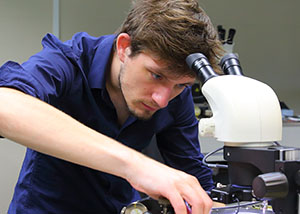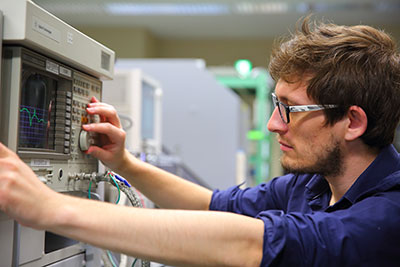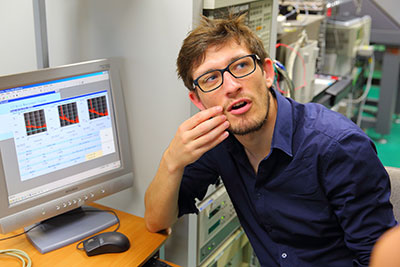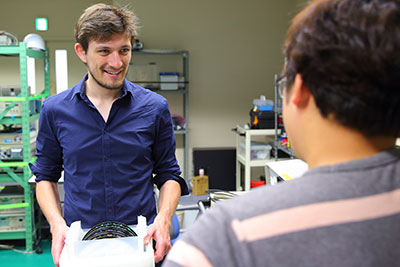- HOME
- > Student Interview: Alexandre Kircher (France)
Student InterviewAlexandre Kircher (France):
A Lyon in Sendai

Coming from the north-eastern French city of Metz, Alexandre was introduced to the Japanese culture through Japanese animation, as many of his childhood’s favorite cartoons were animes. From then on, he never ceased to be curious about Japan, whose cultural products were widespread in France at that time. He had the opportunity to read many famous mangas, such as Dragon Ball, Fullmetal Alchemist, Death Note, Beck, and to watch many animated movies, such as Studio Ghibli’s productions or Satoshi Kon’s works. Later on, he also discovered Japanese cinema through the outstanding movies of Akira Kurosawa.
But his first major step towards Japan was taken in 2013 when he moved to Lyon to continue his engineering studies. At his school, he started to learn Japanese, and also met several Japanese students who came to his university as part of exchange programs. That is where he discovered a more authentic image of Japan and its culture, and what was at first a mere curiosity became a real desire to experience the country in person.

The opportunity to do so was given in November 2014 by Professor Philippe Gaubert, who proposed a research subject to the International Relations Service of the Ecole Centrale de Lyon. As the subject was interesting and was an opportunity to discover Japan, Alexandre contacted him and they started to exchange e-mails. Nevertheless, even though they got to meet in March 2015 when Prof. Gaubert was visiting his school with a Tohoku University delegation, he could not come to Sendai in 2015 because of schedule problems between French and Japanese semesters.

He was finally able to come to Tohoku University last April as part of an internship year during which he also did training in Robotics in France.
At the Sugawa and Kuroda Laboratory, he began to work on noise disturbance in MOS transistors. Nowadays, one of the big issues in transistor miniaturization is that the current processes can induce some defects that interfere with the current travelling inside the transistors, making the voltage randomly change between two states. Given that the smaller the transistor, the more important the defect becomes, under a certain size, a transistor with such a defect is unreliable. Even though it is quite “rare” (typically, less than one percent of transistors), it is far from being negligible in light of the great number of transistors that present processors contain (more than a billion). The goal of those studies is to get a better understanding of what is at stake with this noise, how it works and ultimately how we can improve our processes.

As it is rare, finding one transistor which presents RTN is problematic: therefore, the researching members of the laboratory have already crafted a circuit board which can test more than hundred thousand transistors in one measurement. Statistical data can then be extracted from the measurement, which enables us to test the physical models that we have. Due to the shortness of his semester, Alexandre will only be able to work on those aspects, but not conduct the next step of the scientific approach, which is to test different processes to see if they tend to diminish or not the number of defects in transistors. Nevertheless, his research will lay the groundwork for further studies which will be conducted at the Sugawa and Kuroda laboratory.
